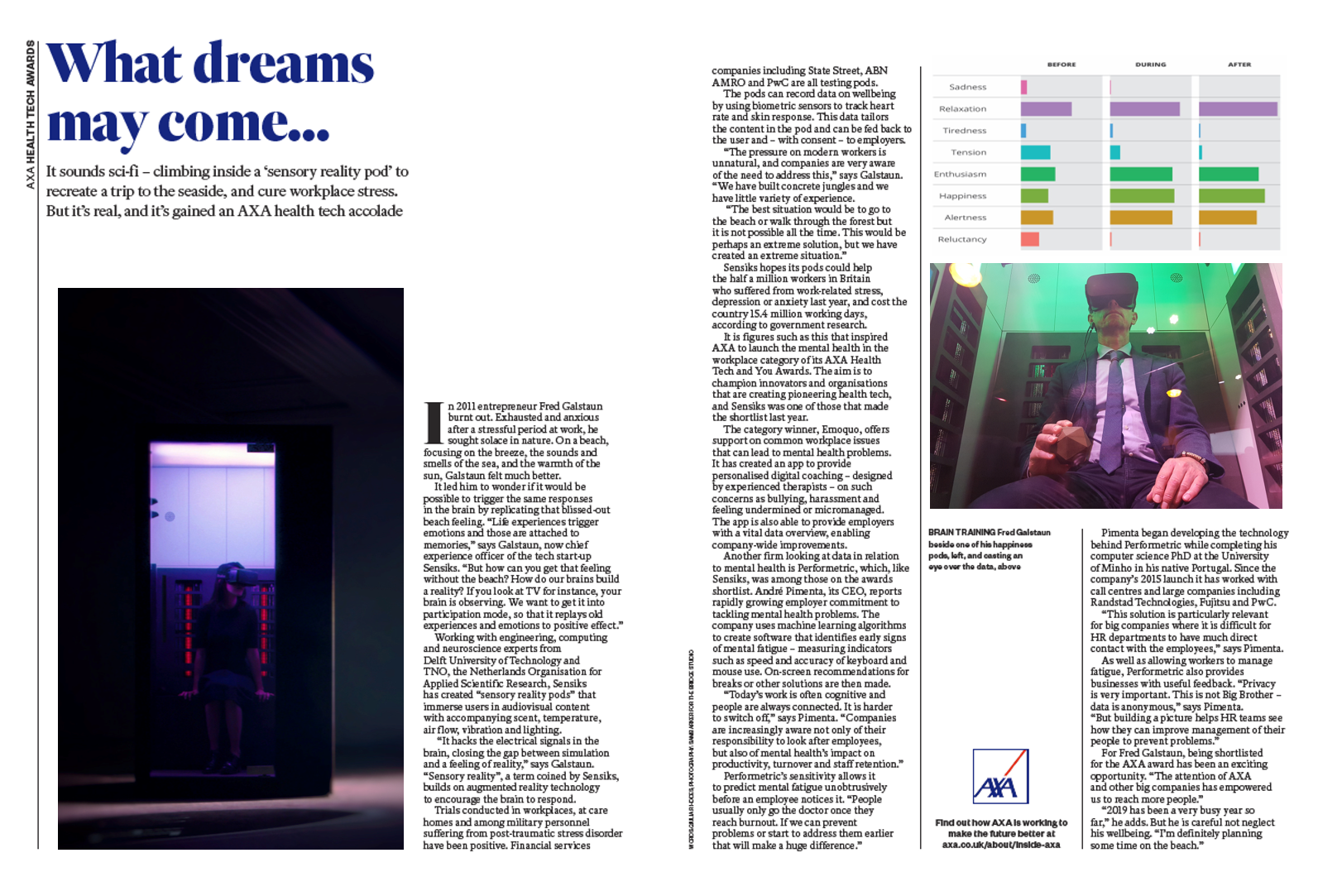Mental health problems are increasingly impacting the workplace, with one in four people experiencing a mental health problem in any given year*.
This means in a small business of 40, ten people could potentially be struggling from mental health difficulties, such as depression or anxiety. Coverage of these issues in the media is helping to raise awareness amongst employees and encourage employees to speak up about issues that are causing them stress and leading to more complex mental health problems.
Identifying symptoms of mental health issues
As an employer it can sometimes be hard to identify when one of your employees isn’t feeling at their best. We’ve outlined three core areas to be aware of which may indicate that an employee could be suffering from mental health issues:
psychological symptoms
Symptoms such as confusion, indecision, and aggression are all signs that your member of staff may not be coping very well. Also having low mood/mood swings, being tearful, exhibiting low self-confidence, seeming unmotivated and deterioration in memory are all signs towards suffering from mental health issues.
Physical symptoms
If you notice a change in their movement (e.g. moving more slowly than usual), change in weight/appetite, unexplained aches and pains this could be a physical sign that your employee maybe suffering from mental health issues without realising it.
Behavioural/social symptoms
Does an employee appear nervous, have they changed their eating habits, changed in attendance, began neglecting work, withdrawing from social media channels, loss of interest in appearance, or deterioration of performance at work, fatigue? Well, these behavioural and social symptoms can be contributing factors of someone living with mental health issues.
Challenges in the workplace
The workplace environment can also add to mental health issues amongst your workforce. Signs of stress in a group of people within a business can become apparent through increased dissatisfaction, complaints/disputes being raised, increase in staff turnover and grievances against managers.
An increase in customer/client complaints can also highlight dissatisfaction and may be a sign that individuals and teams within the business are not coping with workload, failing to communicate effectively and/or feeling under pressure.
The following factors can contribute to mental health issues amongst your team:
Lack of flexible working conditions or genuine barriers to flexibility, such as work demands/nature of the job
Lack of boundaries when it comes to things like email etiquette (receiving emails out of hours can exacerbate the pressure people feel under)
Not having proper breaks, exacerbated by a “lunch hours are for wimps” attitude
The perception that one has to be the first one in the office and the last one to leave
The pressure to demonstrate ‘presenteeism’ - when jobs are perceived as under threat (or the sector is not doing well economically or downsizing) employees can feel pressured to work extra hard, even when they are unwell. This can cause burnout, which is no good for the individual’s clients, or their family.
How can you support your staff?
For employees who acknowledge that they’re not coping well, there is a wealth of online resources and support available (e.g. Mind). These self-help materials offer advice on how to maintain a better work/life balance by prioritising effectively, as well as increasing exercise, making better food choices and getting quality sleep.
SME owners should direct employees to seek necessary support via their GP, occupational health service or employee counselling helplines.
Making changes to your workplace
Make your workplace environment a positive place to be, by offering support to your team through:
Openly acknowledging the resources available such as those from charities including Mind, Rethink and Anxiety UK.
It’s also vital to communicate with staff. This means being open with them about current pressures across the business, as well as dispelling rumours which may have a negative impact on staff morale.
Supporting initiatives such as ‘Time to Change’ as well as promoting employee counselling help lines, and made accessible across the business.
Be mindful that changes in workplace culture need to be modelled from the top down, i.e. managers must lead by example by demonstrating healthy behaviour to their employees and ensuring they promote a healthy work/life balance.
This can include encouraging your staff to take regular breaks, as well as using all their holiday and avoiding out of hours emails. It’s also important to recognise the support systems that families bring to your employees, by inviting them to join in with social events and allowing employees to work flexibly when they have family commitments.
source: https://www.axahealthtechandyou.com/previous-finalists/2018-finalists/mental-health-in-the-workplace-challenge




